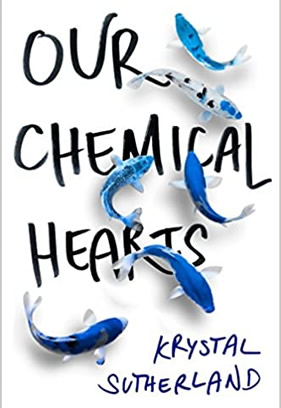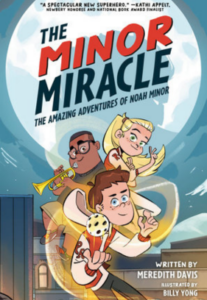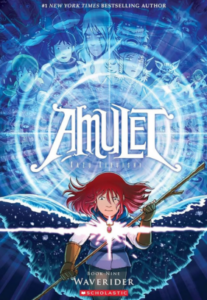Our Chemical Hearts, though published back in 2016, made its way to the big screen earlier this year with stars Austin Abrams and Lili Reinhart. And when I reviewed the Chemical Hearts movie for Plugged In, I wrote that for all its lessons “about teenage love and heartbreak, it’s not a film that most parents would want their teens to see.” And arguably, I could say the same for the book.
Main character Henry learns a lot about himself from his relationship with Grace. He learns that he is drawn to broken people. He learns that he can be a bit jealous. And he also learns that he has an unrealistic view of love.
He wanted the love that would last a lifetime—a love like his parents had. But what he didn’t realize was that his parents weren’t actually in love anymore. Sure, they’re still best friends and they stuck together to give him a stable childhood, but the minute Henry learns the truth, they stop pretending. And Henry has to face the facts that not all loves can be perfect and last forever.
This is a reality he has to face in his relationship with Grace. The truth of the matter is that Henry isn’t Grace’s one true love. Dom was. And the fact that Dom was taken from her so tragically makes it difficult to say whether she’ll ever stop loving him, even if she does manage to heal from his death.
Putting teenage melodramatics and heartbreak aside, the book is filled with content that many parents may not want their children to read. Characters have sex and talk about sex. The profanities in the book are far worse and far more frequent than the ones in the film. We hear some graphic descriptions about Dom’s death. And there’s a lot of underage drinking going on.
However, it does teach some lessons, such as the fact that no matter how devastating a heartbreak may be, your friends and your family will be there to help you through it. They won’t be able to fix it—only time can heal those wounds—but they can make you feel better, the story tells us.
And Henry gets honest with readers about love. He tells them that standing in front of someone and offering them your soul and having them reject you is going to be one of the worst things that ever happens to you. He tells them that anyone who has that experience will naturally wonder what was wrong with them that they couldn’t make that other person love them. That they’ll look for a reason why and find a million. But then he wisely tells them, “What you need to remember, as I remembered as I watched Grace Town leave, is that you are extraordinary.” And if readers can somehow muddle their way through all the problematic content, that’s actually a beautiful (and true) lesson to leave them with.











